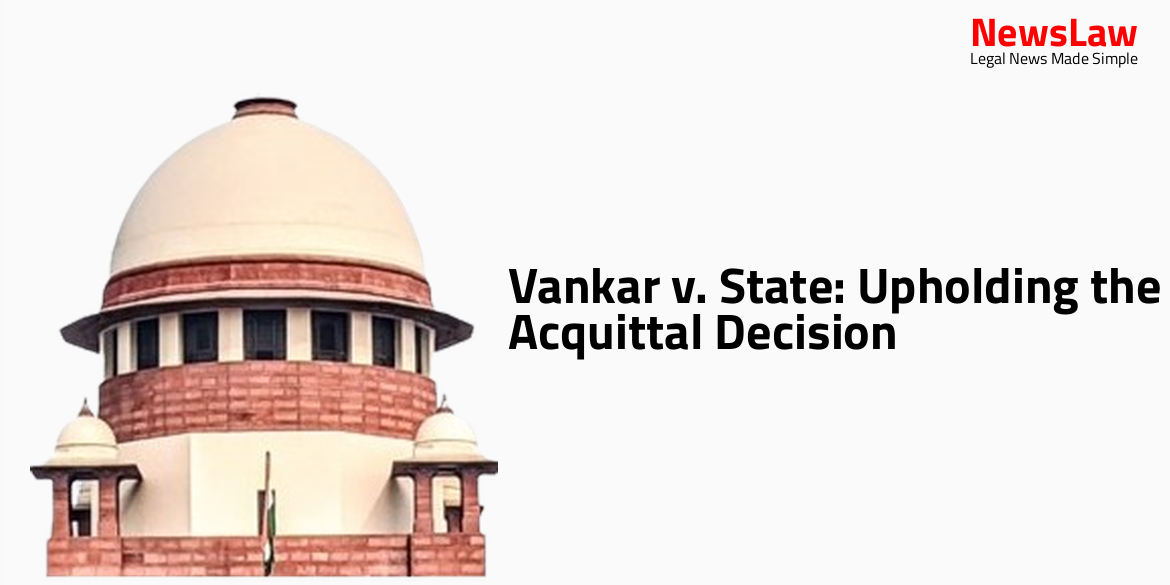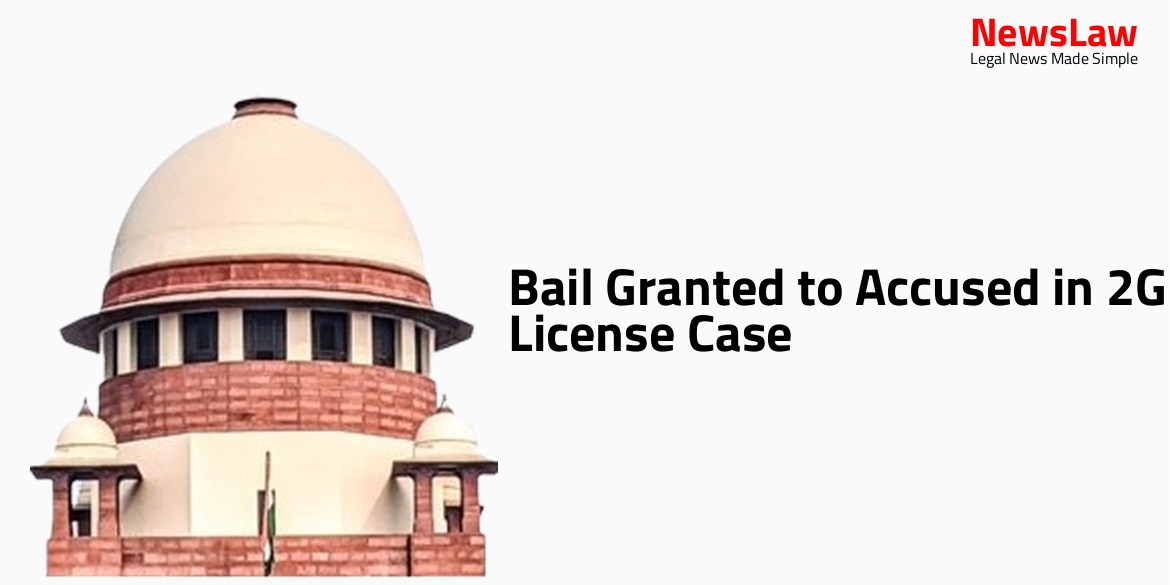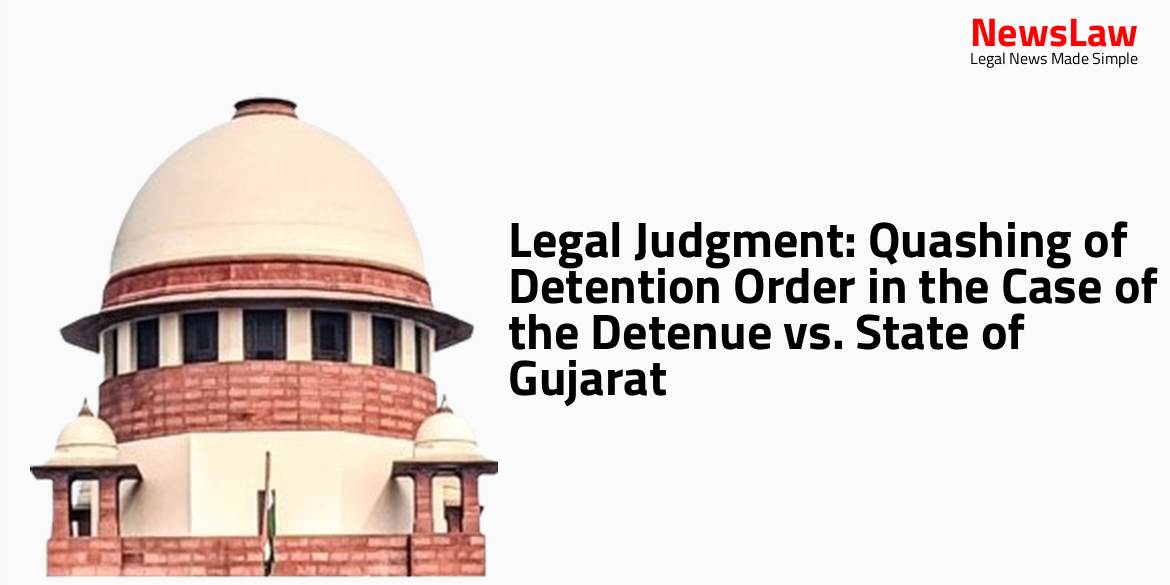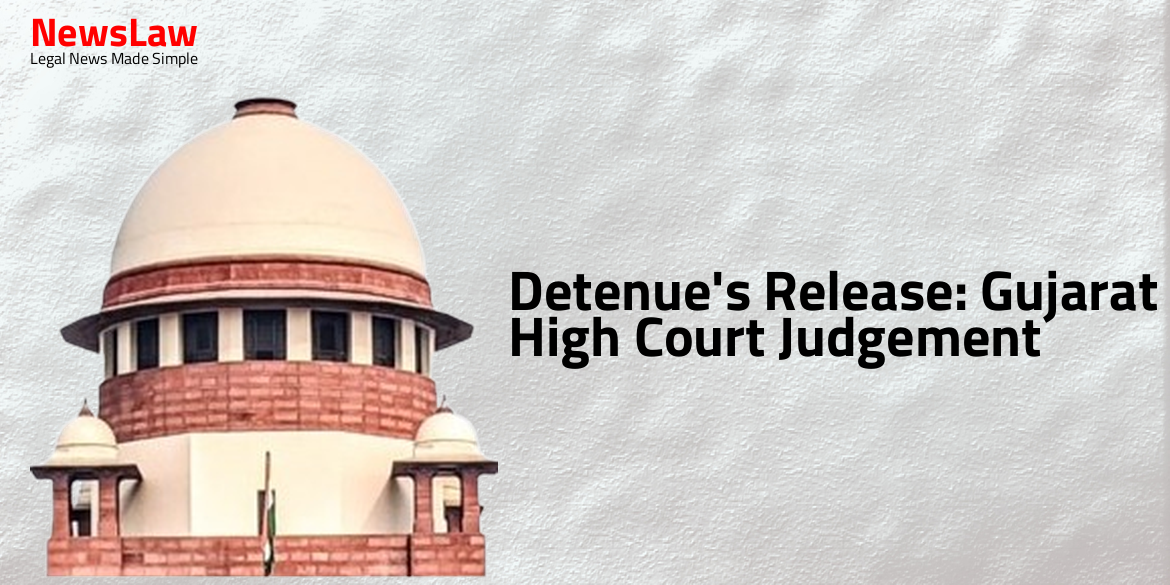In the case of Vankar v. State, the Gujarat High Court has made a crucial decision regarding the acquittal of the accused respondent. This case delves into the complexities of witness testimony and the challenges of proving guilt beyond a reasonable doubt in criminal trials. The judgment sheds light on the intricacies of the Indian legal system and emphasizes the need for thorough examination of evidence. Learn more about this landmark ruling in the legal domain.
Facts
- The State has appealed against the judgment and order of acquittal passed by the Additional Sessions Judge.
- The respondent accused was acquitted for offences under Section 435, 436 of the Indian Penal Code and Section 3(i)(x) of the Scheduled Castes and the Scheduled Tribes (Prevention of Atrocities) Act, 1989.
- The appeal has been filed under Section 378 of the Code of Criminal Procedure, 1973.
- Complainant Bhagubhai Aajabhai Vankar was informed about a fire behind his residence by a neighbor, Vimlaben.
- Accused met the complainant after the fire was extinguished, admitted to setting the house on fire, and threatened to set the entire area on fire.
- Complainant registered a complaint alleging setting his house on fire and causing damage.
- Charge sheet was filed under relevant sections of the Indian Penal Code and the Atrocities Act.
- Witness statements, panchnama, discovery and recovery of weapons, and FSL report were obtained during the investigation.
- Sufficient material was found against the accused leading to the filing of the charge sheet.
- The accused claimed innocence and pleaded not guilty during the trial.
Arguments
- The Additional Public Prosecutor, Mr. Manan Mehta, argued that there are 15 eyewitnesses and the complainant identified the respondent accused.
- Mr. Mehta highlighted that various witnesses attested to the derogatory remarks about the complainant’s caste made by the accused respondent.
- The learned Judge failed to consider crucial testimonies of witnesses like Ashabhai, Maganbhai, Mukeshbhai, Rambhai, and Kanubhai.
- Mr. Mehta argued that the Judge erred in acquitting the accused despite substantial evidence against him.
- Evidence of the fire incident was highlighted, where the complainant’s house was set on fire by the respondent causing damage.
- The complainant’s immediate report to the police station and subsequent registration of the complaint at Kheda Camp was emphasized.
- The State’s representative highlighted errors made by the Judge in acquitting the accused, despite clear witness testimonies and evidence.
- Specific instances of the accused making threats and committing the crime were pointed out by the prosecution witnesses.
- Mr. Mehta argued that the Judge failed to appreciate crucial aspects of the complainant’s statement and witness accounts, leading to the wrongful acquittal of the accused.
- The learned advocate Mr. P.V. Patadiya prayed for the dismissal of the present appeal.
- Mr. P.V. Patadiya representing the accused respondent argued that the judgment under challenge is just, legal, and proper.
- The absence of an eyewitness to the incident was highlighted, leading to the conclusion that the trial judge was right in acquitting the accused respondent.
- Contradictions in the deposition of witnesses and lack of consistency in the prosecution evidence were pointed out as reasons supporting the acquittal.
- The extra-judicial confession made before a witness was deemed unreliable without corroboration with other evidence.
- The testimony of PW-1 was considered as hearsay and not that of an eyewitness, further supporting the acquittal of the accused respondent.
- It was emphasized that there is no animosity or enmity between the witnesses and the accused persons, reinforcing the credibility of the judgment of acquittal.
Analysis
- The High Court’s powers in an appeal from order of acquittal are extensive and similar to an appeal against conviction.
- Absence of eyewitnesses to the offense and lack of concrete evidence regarding derogatory remarks about caste lessen the strength of the case.
- In an acquittal appeal, the appellate Court cannot substitute its view unless the trial Court’s findings are inherently flawed or unsustainable.
- Witnesses have not directly seen the accused setting the house on fire, weakening the prosecution’s case.
- High Court should refrain from interfering if the trial Court’s view is plausible based on the evidence.
- A witness admitted to withholding vital information and improvising his statement, casting doubts on the reliability of the testimony.
- A third witness only heard the accused admit to the crime but did not witness the act or derogatory remarks.
- Based on Supreme Court’s guidance and the lack of concrete evidence, the High Court decided not to interfere with the acquittal.
- The Criminal Appeal was dismissed, and the case was sent back to the Trial Court.
- In the instant case, the High Court should give proper weight to the view of the Trial Court regarding the credibility of the witness.
- The Trial Court’s presumption of innocence in favor of the accused and the right of the accused to the benefit of any doubt should be considered.
- The appellate court should be slow in justifying a finding of fact reached by a Judge who saw the witness.
- If the main grounds for acquitting the accused by the lower Court are reasonable and plausible, the High Court should not disturb the order of acquittal.
Case Title: STATE OF GUJARAT Vs. MANUBHAI DESAIBHAI BARIYA
Case Number: R/CR.A/149/1998



